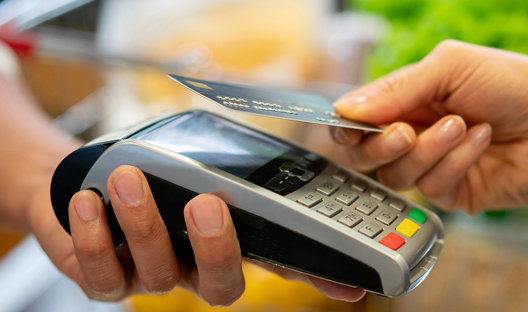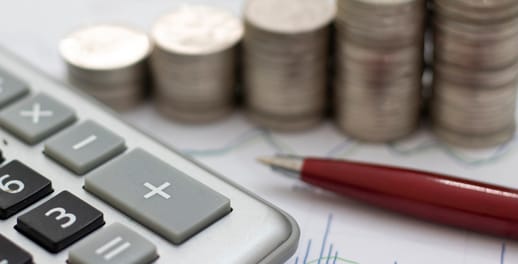Why should you draw up a budget?
Everyone tells you that you need to budget. Every financial blog or book tells you that your expenses should not exceed your income. Every banking billboard tells you that you need to save for the future.
Have a savings goal
It’s true that if you have a budget, you’re less likely to face financial stress. It’s also true that you’re also more prepared for unexpected expenses. But only you can create a budget that works for you, your lifestyle and career as a young professional. It’s important to have a savings goal.
You don’t need a financial degree to manage your finances, but you must know what you want to get out of it. What do you want your money to do for you that will make your life out of the ordinary?
Do you know your money priorities?
If you don’t understand what your motivation is, drawing up a budget may be pointless. Many young people feel overwhelmed at the idea of tracking every cent we spend. Others may be unwilling to face their fears.
This year, the budget challenge is on. The goal you could set yourself is to be both conscious about your spending right now and clear about your future goals.
January | Set up a budget

When setting your budget, you can make it as simple or as complex as you want. Some people like to take out their salaries basic expenses like rent or mortgage payment and food, and then roughly divide up the rest.
Others like to ‘automate’ their savings and investments, in that they set up debit orders for retirement annuity, money market or a property track funds. In a way, it’s a forced saving and may protect you from overspending.
Some people follow the 50-30-20 rule of thumb for budgeting, which Elizabeth Warren made popular in 2006.
How to use your budget
- Budget 50% of your net income to basic fixed expenses (rent or home loan, travel, groceries, security, short and long term insurance credit card repayments etc). Net income is your salary after tax has been taken off.
- Budget 30% for lifestyle expenses (Netflix or iTunes, eating out, clothing, cellphone upgrades, etc).
- Budget 20% for savings or an emergency fund (burst geysers, sick pets etc) or to pay off student loans or outstanding debt. Try to build up your emergency fund to cover at least three months of expenses.
February | Save for an emergency

This month, give some thought to what you would do in an emergency or a crisis. Financial journalist Maya Fisher-French believes you should have at least R10 000 in this fund before you start tackling any debts you may have.
However you choose to set it up, you should consider creating an emergency fund and building it up to help you out in case of ‘emergencies’ (retrenchment, burst geyser, etc).
Starting this fund will also build up self-discipline. You can perhaps start as small as you want (R10 to R100 a month) or ambitiously if you can afford to (10% of your net salary).
When choosing a savings account for this type of fund, look at different options (such as instant access, access with notice, or access after a fixed term) and open an account that best serves your needs.
March | The right cover and insurance

It’s not always pleasant, but this month make some time to sort out the big decisions that no one really likes to think about. You may want to review your medical aid, long term disability cover and income protection cover.
Why do you need cover when you’re young and healthy?
As a young professional, you often have car and home loans and other liabilities. You may want insurance cover that protects you against this debt if the worst happens and you may want to secure your potential future earnings with an income protection policy.
Sinenhlanhla Sithomo of Investec Life, suggests you consider the cover you need at critical life stages. “During youth, one is more likely to be disabled in an accident than to die of any natural cause,” he says.
“This implies a greater need for disability cover at younger ages to protect against loss of income and other expenses arising out of a disability.”
While you may shop around and compare quotes for the best prices, it is important to do your homework – the best price may not always translate into the best policy for you. Sithomo suggests that personalised insurance is not only about the product, but a holistic view of your needs and financial situation.
April | Paying off loans and credit cards

Most people don’t always think about just how long it takes to pay off credit card debt. If you only pay the minimum due on your credit card, you could still be paying it 10 years later.
Limit credit card purchases
This month, it’s perhaps time to get tough on plastic and learn the art of self-control. If you enjoy the convenience of having a credit card, make sure you pay the full balance at the end of the month. Try to avoid opening too many credit cards – as the monthly or annual service fees of extra cards can add up. Store cards, for example, can come with high interest rates.
If you’re responsible with credit, you can make a credit card work for you. While most rewards programmes don’t allow you to convert points into cash, points can often be used towards travel, shopping or even to pay your annual or monthly card fee.
You qualify for up to 45 days interest-free credit on an Investec Visa Platinum card as a young professional.
May | Budget for a holiday or travel

This month, if you’re planning to escape the nine-to-five grind, you can perhaps put your focus on your dream holiday.
How much you spend on travel should be determined by the rest of your monthly financial obligations, as well as your other savings and investment goals.
Sit down and think about the type of trip or dream experience you want. You may want to create a digital vision board. Try to be specific. Write down including the country or city you wish to visit.
Research the costs associated with the trips – eg, average costs of flights, visa costs, transport/Uber, food and drink, entry fees for museums and concerts, etc.
Keep your eye out for winter specials or last-minute packages, as you could also save money on your trip.
If travel is a priority for you, you could look at opening a dedicated travel savings account – so there is spare money available when you’re ready to travel.
It’s not always a good plan to rely on credit cards to pay for a holiday – otherwise, you could spend years paying it off. Take the trip you can afford, not the one you’ll regret.
June | Budget for a tax break

There is no way to avoid paying tax and it is important to submit your tax return to SARS on time to avoid late penalties.
However, the South African National Treasury allows a tax-free savings account as an incentive to encourage individuals to save.
What is a tax-free savings account (TFSA)?
With a tax-free savings account, you can save or invest up to R36 000 a year, capped at a total lifetime contribution of R500 000, which will attract zero tax.
Income-protection cover and tax
While the premiums you pay on income-protection policies are no longer tax-free, the benefits paid by these policies are exempt from tax.
Retirement savings and tax
You can also consider increasing your retirement savings up to the maximum tax-deductible amount. Keep in mind, that while you may be saving now, you will be taxed when you withdraw it.
When you are reconciling your income and expenses for your annual tax return, you will have a clear retrospective of your finances. You can use this information to create or adjust your budget for the next tax year.
July | How to manage your money wisely

This month, you could explore how making some lifestyle changes and setting healthier goals can improve your finances.
You could look at some of the vices you may indulge in (smoking, alcohol, etc). These are not only expensive, but they may be also affecting your health. If you can, try to limit these indulgences – or cut them out.
The weekend is also a bad time for a budget. One or two dinners out, drinks at the bar after work with friends, an impulse purchase or Saturday morning shopping spree – all these can add up.
We all want the latest cellphone or air pods, a new suit or dress for work, but sometimes you need to delay gratification and take a long-term view of your financial future.
August | Watch your cash flow and track your purchases

It takes time to develop a budgeting discipline – the savings muscle takes time to become strong. Habits don’t happen overnight, but with awareness and focus, you can get better at it.
Sometimes it’s not about having more money, but it may be about being smarter with the money you do have.
Budget is about discipline
One of the common mistakes in budgeting is having unrealistic expectations; it needs to be a plan that you can stick to. Another common trap is to budget based on your gross income or relying on your annual or performance bonus to make up a shortfall.
Keep a money journal
You could try keeping a money journal or diary for a month. Keep a log of everything you buy every day, and at the end of the month compare the smallest amount with the biggest amount you spent – see if you spot a trend.
At the same time, you could also start to explore your relationship with money. Grab a notebook and give yourself 10 or 20 minutes to write freely and honestly about money.
Here are some questions to get you started with a money journal
- What is the real value of money in my life?
- What would being broke mean to me?
- What would I do more of, if I could afford it?
- What is stopping me from saving money?
- What are my biggest spending triggers?
You can use a digital tool, ‘Manage my finances’, on Investec Online, which tracks your income and spend.
September | Start saving money

This month, you may want to think about downscaling and decluttering your life. Sometimes you may need to scale back in a major way – like getting a place that is cheaper to rent, finding a roommate, or giving up your personal trainer.
Other times you can possibly sell items you don’t need anymore, like a video game collection, old golf clubs, etc. With the extra cash, you can start saving for big-ticket items you’re budgeting for (eg, a new sofa, cellphone etc).
Of course, it is not just about decluttering your physical space. Look a clearing out subscription services and debit orders you no longer need, and unsubscribing from newsletters that pop up in your inbox offering sales and discounts.
And, if you have time, you may want to look at a second income stream or a side hustle. If you have a hobby or passion (like social media marketing, photography, etc) look at ways it could make you extra cash and start saving money.
October | Understanding compounding interest

This month is about understanding the power of time and compound interest.
If you are budgeting to put money towards savings and investments, it is important to know how these relate to the concept of compound interest.
What is compounding interest?
Compounding interest is interest calculated on the principal amount or first deposit that you save or invest. It includes all the accumulated interest for the period of that first deposit – also called the compounding period. Simply put, it is interest on interest.
For example, if you secure a 5% annual interest rate on a deposit of R100, you will get R5 after one year. The following year, you will earn interest on that first deposit plus interest on the interest you have just earned – because your account balance will now be higher at R105 and not R100.
November | Get bargains when shopping in-store and online

There’s nothing like a bargain this month is a great month to hunt down a bargain. The trick is to be smart about spotting a good deal on a service or item you really need.
This month, try to use social media to ask your network of friends to share their tips. Why not ask them to recommend restaurants that offer week-night specials, closing sales, factory outlets that charge less than retailers, etc?
Facebook Marketplace, Gumtree and OLX, for example, make it simple to source new and used items (clothes, furniture, equipment etc).
Food, craft and goods markets also offer a chance to hunt down a bargain and support local small businesses at the same time.
If you are shopping for Black Friday and Cyber Monday, make sure you stay secure when you’re doing online shopping (eg, don’t use public Wi-Fi and keep your PIN and password protected.)
December | Budget for a festive splurge

The festive season is a tricky time for your budget, with Christmas, Hanukkah and other gift-giving holidays all having the potential to mess with your perfect budget.
This month, you don’t have to be tightfisted but you also don’t have to be a spendthrift either. Sometimes sharing special moments and memories with your friends and loved ones are more important than expensive gifts or outrageous parties.
If you have accumulated loyalty or rewards points from retailers, insurers or your bank over the year, this is a good time to redeem the points or benefits – it could help ease the burden on your wallet over the festive season.
Back to the top





